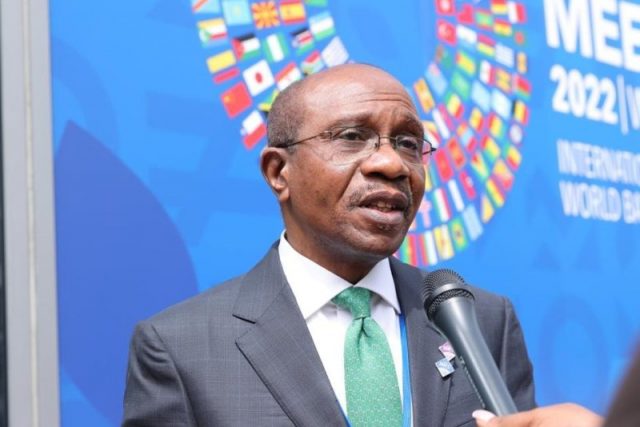FRI, 13 MAY, 2022-theGBJournal | The partisan disposition of the Central Bank of Nigeria [CBN] Governor, Mr Godwin Emefiele, has cast a dark cloud over the credibility, independence, neutrality and professionalism of the Central Bank of Nigeria. It is a troubling development because of the huge reputational risk to the Central Bank of Nigeria and the wider implications for the Nigerian economy.
It portends ominous outlook for the credibility of monetary policy, foreign exchange policy, management of intervention funds and the impartial discharge of regulatory responsibilities of the apex bank. There are also profound implications for the confidence of investors, both foreign or local. The Central Bank is an institution that needs to earn the trust of all stakeholders in the economy, irrespective of their political affiliation, creed, gender, religion, ethnicity or vocation. It is difficult to earn this trust with the unfolding scenario of the obvious partisan stance of the CBN Governor. This development raises serious ethical and propriety issues, which are much bigger than the legal questions.
These are not the best times for the Nigerian economy. The distractions of dragging the apex bank into the chaotic space of partisan politics can only worsen an already bad situation. The economy is yet to recover from the shocks of the COVID-19 pandemic. Many businesses and investors are still struggling to survive in the context of a fragile economic recovery. The onset of the Russian invasion of Ukraine had inflicted yet another profound macroeconomic dislocations and supply chain disruptions on the global and domestic economies. It is a case of multiple devasting shocks on the economy and businesses.
It is bad enough that stakeholders in the economy are contending with the following predicaments, which are partly consequences of dysfunctional monetary and foreign exchange policies of the Central Bank:
1- Record plunge of the naira exchange rate to aboutN590 to a Dollar.
2-Unprecedented disparities between the official and parallel market exchange rates which has created grave distortions and dislocations in the economy. The disparity in rates has created a paradise for forex brokers and currency speculators. The business of forex round tripping is also flourishing.
3-There is a liquidity crisis in the forex market on a scale never witnessed in a recent history. Many players in the economy are faced with great difficulty in accessing foreign exchange to import their raw materials, equipment and meeting their foreign payment obligations to their partners. Some have suffered reputational damage as a result.
4- Many foreign investors are not able to remit funds outside the country which has created serious country risk and perception problems for the Nigerian economy. This had also negatively impacted foreign capital inflows into the economy.
All of these have put the economy under severe strain, weakening growth outlook. We cannot afford to worsen the current economic situation with a Central Bank that is entangled in the controversy of political partisanship.
In the circumstances, the most respectable course of action for Central Bank Governor is to resign in order to preserve the integrity, credibility, independence, neutrality, and professionalism of the CBN. This is also imperative to ensure the trust and confidence of stakeholders in the Central Bank of Nigeria.
This article is provided by DR Muda Yusuf, Chief Executive Officer, Centre for the Promotion of Private Enterprise (CPPE).
Twitter-@theGBJournal|Facebook-The Government and Business Journal|email: gbj@govbusinessjournal.ng|govandbusinessj@gmail.com








